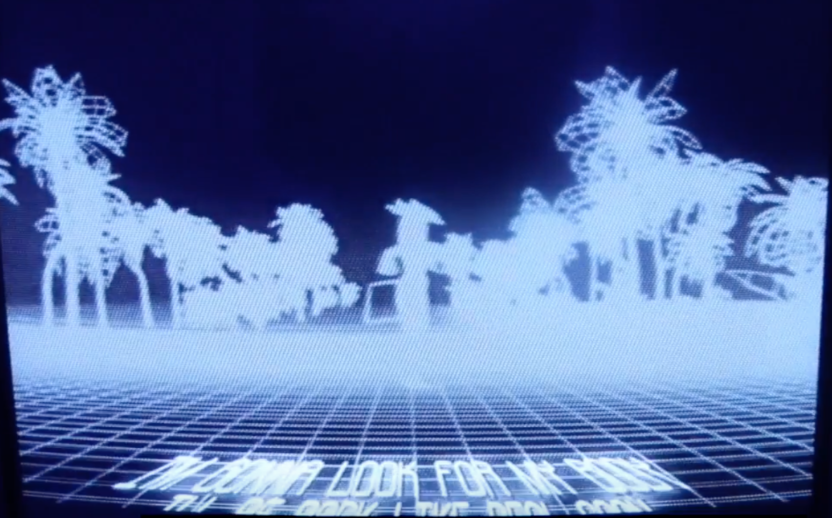As part of our Visionary Fictions 2018 Programme, Irene Fubara-Manuel took over the gallery with her exhibition Dreams of Disguise.
This installation ‘Dreams of Disguise’ is a traversal of the virtual border and the racialized biometric technologies in which this space exists. It blurs documentary truth and science fiction, to reveal the ubiquitous surveillance of migrants, the violence inherent in this practice and the desire for opacity.
Transcript
My name is Irene ‘Tokini’ Fubara. I am an artist and a researcher. So Dreams of Disguise is part of my doctoral dissertation on biometric technologies, their colonial histories and their contemporary practices and applications. I find gaming to be a very interesting idea simply because of that idea of agency and who is not allowed agency.
Whenever you’re going to the border it seems as though everything, all the agency sort of moves towards the government. So you have border agents versus interviewees. You know, you have security officers. You have people whose work it is to sort of strip you little by little of your agency. So you do not belong to your body, your body does not belong to you and it’s just those layers of losing your agency. So I find video games to be useful in that sense because, yes you get a lot of agency from just being able to move a player, from being able to sort of control the narrative to some extent, within the limits of the game.
So the idea for Dreams is sort of very much linked to speculative fiction which is what visionary fictions is about right? It’s speculative ideas, dreaming up worlds which is pretty much in the title. So, especially in the game where you sort of, you ‘complete’ the game, right? And you end up in this like dream space that I’ve created that sort of always has this reminiscence of a place that you’ve been to but you’ve not necessarily been to. A place where you see people dancing and it’s fun but it sort of it doesn’t feel like a real space as well. And also with the themes that I sort of address in the looping video is that idea of portals, that idea of the technology sort of being a portal into the virtual, being a portal into these other spaces, where the violence truly occurs.
So yeah, Dreams has loads of like, you know, loads of, um, real moments, that have sort of come from my personal life that I have brought into fiction, that I have brought into science fiction. The themes of science fiction, the themes of, you know, digital spaces in order to sort of have these discussions that we can have about borders and about digital borders and about the futures of our bodies as migrants as we move through these borders.

—
Share on Twitter /
Share on Facebook
Posted on October 2, 2018
Categories: Art for Social Change, Decolonising Art & Culture
Tags: 2018, Brighton Digital Festival, Irene Fubara-Manuel, Transcripts, Videos, Visionary Fictions
→ Top Cat Spotlight: Sun-X
← Artists in Residence: Lost Species Day 2018
